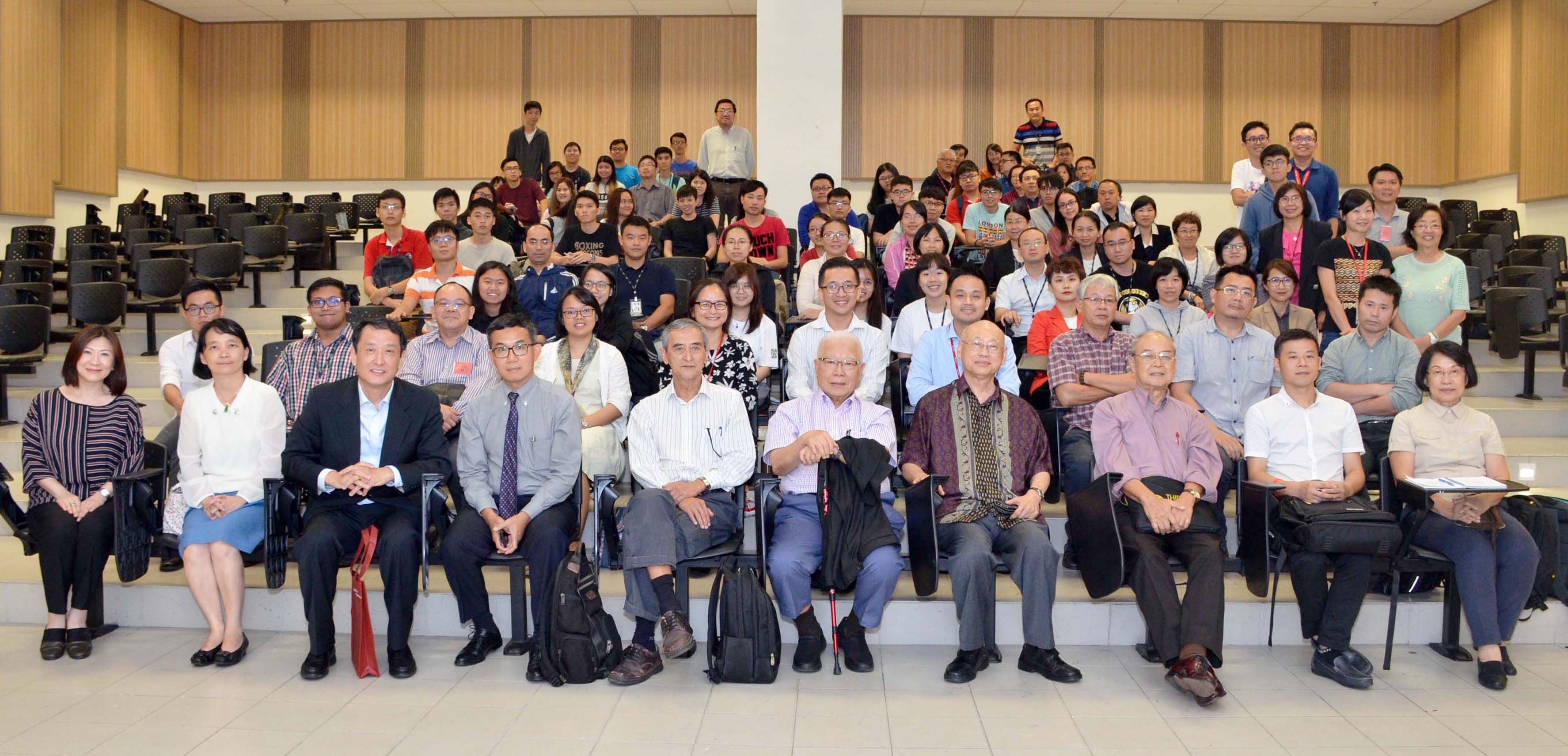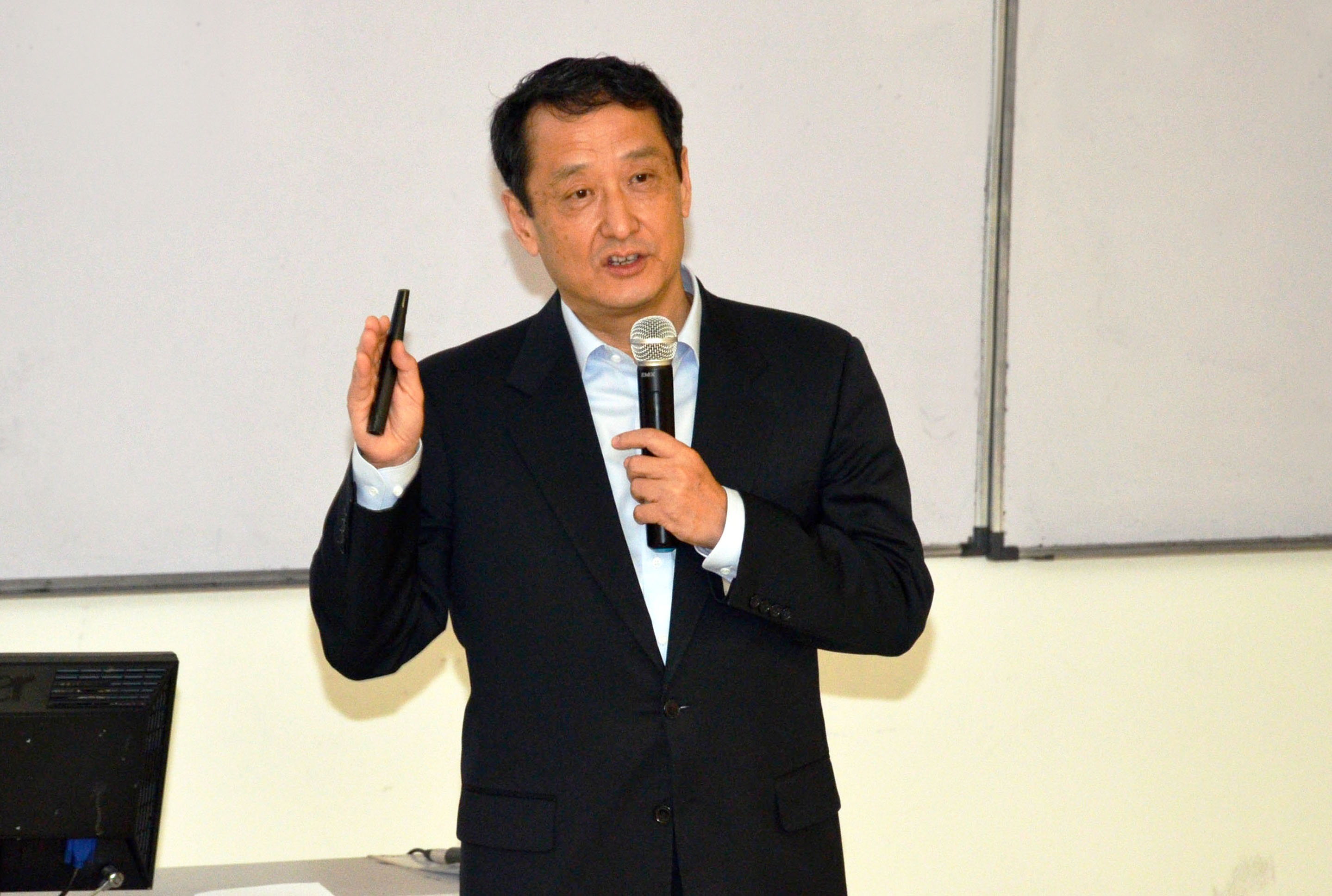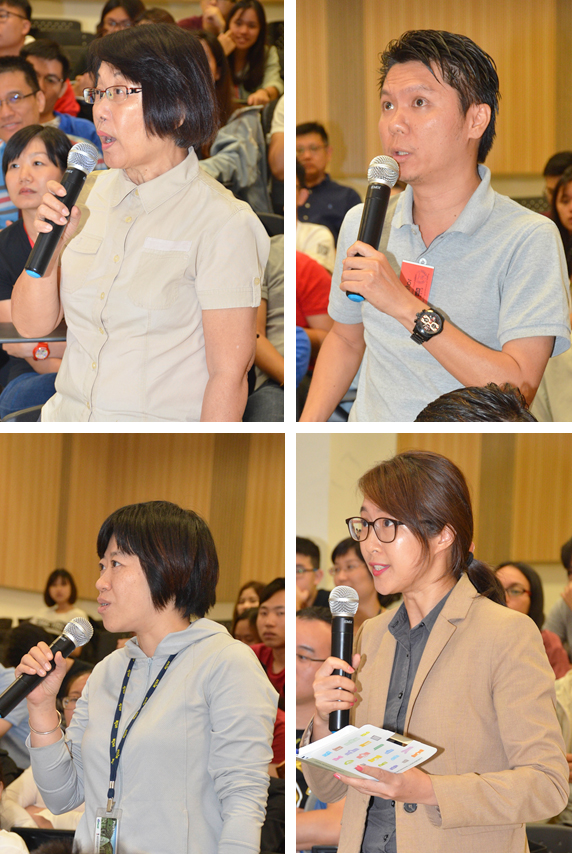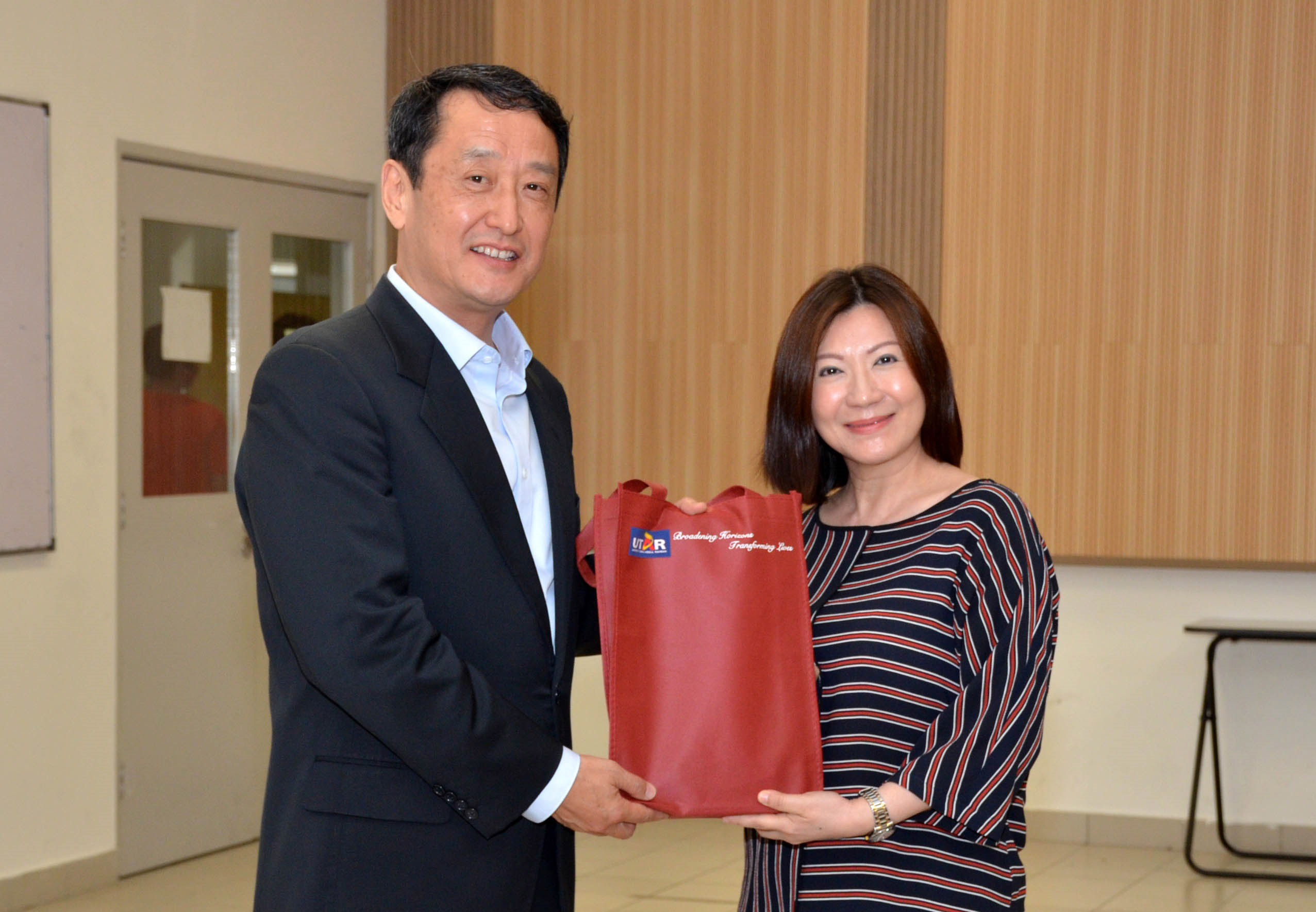

Front row, third from left: Wang with participants
UTAR Centre for Extension Education (CEE), in collaboration with the Centre for International Studies, Belt and Road Strategic Research Centre (BRSRC) and the HEAD Foundation, organised a talk on global affairs. The talk titled “China’s Diplomacy 3.0: How to be creatively involved in World Affairs” was held at Sungai Long Campus on 25 July 2018.

Wang elucidating the China diplomacy from his perspective
Invited to deliver the talk was Prof Wang Yizhou. He is an expert in China’s diplomacy and international relations and his diplomatic concept of “Creative Involvement” has widely influenced the discussions on China’s foreign policy among academics and policymakers.
Also present at the event were the HEAD Foundation Managing Director Lim Yu-Book, Director C. D. Liang, Projects Manager Ben Ning, UTAR Belt and Road Strategic Research Centre Chairperson-cum-Institute of Management and Leadership Development Director Prof Dr Cheng Ming Yu, Centre for International Studies Chairperson-cum-Belt and Road Strategic Research Centre Deputy Chairperson Dr Ho Ying Chan, Centre for Extension Education Director Lim Guat Yen, UTAR staff and students.
At his talk, Wang explained the political premises of the transition and the diplomatic policies during the era of Mao Zedong, Deng Xiaoping as well as the current president Xi Jinping. He said, “China’s diplomacy 1.0 was the era of Mao, and during that period, China’s diplomacy focused more on the spirit of ideological struggle when communicating with the outside world. Deng’s era, on the other hand, focused more on the economic development. The current status of China as an economic superpower is due greatly to Deng’s economic policies.”
He also shared his views on the latest developments in China’s diplomacy, particularly regarding China’s relationship with the outside world. He discussed the possibility of China in providing more international public goods to the world. He quoted the old traditional Chinese medicine sayings “no thrombus, no pain” and explained that the conflicts between the countries can be alleviated and eradicated if they understand and respect each other.
According to Wang, China’s economic strength is growing very fast and catching worldwide attention. However, it is seen as a lame giant for its weak performance in world affairs and some social problems. “China is big, but not strong enough. China still needs continuous learning and improvement in order to stand on the global high ground,” he said.
The talk then ended with an interactive Q&A session, followed by a souvenir presentation from CEE Director Lim Guat Yen to Wang.

Interactive Q&A session in progress

Lim (right) presenting a token of appreciation to Wang
Prof Wang is the vice dean of the School of International Studies (SIS) in Peking University and the Chief Editor of SIS’ International Politics Quarterly. His main publications have included “Ten Issues on China Foreign Affairs (2015)”, “Creative Involvement: The Transition of China’s Diplomacy (2015)”, “Creative Involvement: Evolution of China’s Global Role (2013)” and many more.
© 2019 UNIVERSITI TUNKU ABDUL RAHMAN DU012(A).
Wholly owned by UTAR Education Foundation Co. No. 578227-M LEGAL STATEMENT TERM OF USAGE PRIVACY NOTICE